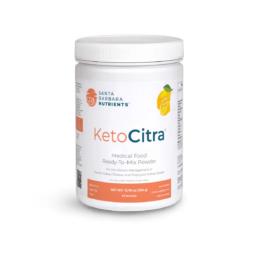When navigating the terrain of nutrition, we often focus on essential nutrients, overlooking the complex world of “antinutrients.” Antinutrients are compounds found in our daily food that might block or reduce our body’s ability to absorb essential nutrients. One such critical antinutrient playing a significant role, especially for those concerned with kidney health, is oxalate.

By Majd Isreb, MD, FACP, FASN, IFMCP
A Glimpse into the World of Antinutrients
- Phytic Acid: The mineral blocker
- Sources: Grains, seeds, nuts, and legumes are rich in phytic acid.
- Effects: Phytic acid can hinder the absorption of crucial minerals such as iron, zinc, calcium, and magnesium. Phytic acid is helpful in preventing the absorption of plant phosphate. This decreases the phosphate load kidney patients may experience when consuming a plant-dominant diet.
- Management: Techniques such as soaking, sprouting, and fermenting can significantly diminish phytic acid content, rendering the nutrients in these foods more bioavailable.
- Lectins: Gut’s nemeses
- Sources: Legumes like beans and lentils, tomatoes, eggplants, and certain grains are known lectin sources.
- Effects: By binding to the gut wall, lectins can disrupt nutrient absorption.
- Management: Cooking, particularly boiling, can degrade most of the harmful lectins. Pre-soaking beans and legumes also aids in lectin reduction.
- Tannins: The iron obstructor
- Sources: Predominantly found in tea, coffee, and some fruits.
- Effects: Tannins can obstruct non-heme iron absorption, potentially leading to deficiencies.
- Management: Diversifying iron sources and not solely depending on plant-based ones can mitigate the impact of tannins on iron absorption.
- Trypsin Inhibitors: The protein barrier
- Sources: Abundantly present in legumes like soybeans.
- Effects: They can obstruct protein digestion by targeting the enzyme trypsin.
- Management: Comprehensive cooking usually neutralizes these inhibitors.
- Goitrogens: The thyroid disruptors
- Sources: Cruciferous vegetables like broccoli, Brussels sprouts, and cauliflower contain goitrogens.
- Effects: These compounds can disrupt thyroid function by inhibiting iodine uptake, vital for thyroid hormone synthesis.
- Management: Regular cooking can substantially neutralize most goitrogenic compounds.
You can see from the above list that many of these “antinutrients” are present in foods that have proven health benefits.
Zooming into oxalate
Oxalate, also known as oxalic acid, is a naturally occurring compound found in many plant-based foods. It’s known for its ability to form insoluble crystals when it binds with minerals like calcium and magnesium. These crystals can interfere with mineral absorption. Oxalate can also contribute to the formation of kidney stones in susceptible individuals. For those focusing on integrative approaches to kidney diseases, understanding oxalates is crucial.
Join us to end the kidney disease epidemic
Oxalate content in common foods:
The oxalate content varies considerably among different foods:
- Very High: Spinach, rhubarb, beet greens, almonds, and Swiss chard contain more than 100 mg of oxalate per serving.
- Moderately High: Foods like okra, sweet potatoes, raspberries, and black tea contain between 50 to 100 mg per serving.
- Moderate: Grapes, celery, green beans, and strawberries contain about 10-50 mg per serving.
- Low: Foods such as melons, bananas, cauliflower, and avocados contain less than 10 mg per serving.
The nutritional conundrum of antinutrients
Antinutrients, including oxalates, can lead to mineral deficiencies such as deficiencies in calcium, magnesium, iron, and zinc. For example, long-term excessive intake of oxalate-rich food may decrease the bioavailability of calcium. This can impact bone and dental health if oxalate consumption remains consistently high without a balanced calcium intake.
Oxalates and Kidney Stones
For individuals with a history of kidney stones or those prone to them, oxalates can pose a particular risk. Kidney stones are commonly composed of calcium oxalate. They can be extremely painful and recurrent. They can also lead to kidney failure.
As we discussed in a previous blog, though, a great proportion of the oxalate that is excreted in the urine is actually formed by the liver from the breakdown of animal protein and collagen.
On the other hand, it is important to realize that oxalate content in the food is not as important as its bioavailability (i.e. how much of the ingested oxalate is actually getting absorbed).
A healthy and well-balanced diet containing calcium and magnesium can decrease the amount of absorbed oxalate by binding it in the gut and preventing it from getting absorbed.
Managing Antinutrients Wisely
- Diversifying Diet: A well-diversified diet ensures a variety of nutrients and reduces the risk of excessive oxalate absorption.
- Cooking Methods: Boiling high-oxalate foods can lead to a significant reduction in their oxalate content as a portion of the oxalate leaches into the boiling water. Thus, discarding the water after boiling foods like spinach or beet greens can help.
- Balanced Consumption: Consuming calcium-rich foods alongside high-oxalate foods can be strategic. The oxalate and calcium can bind in the intestines, which reduces the absorption of oxalate and the risk of kidney stone formation.
- Individualized Approach: Not everyone reacts to oxalates in the same way. Factors such as gut health, metabolic differences, and genetics play a role. For those with a history of kidney stones or other related health concerns, a more personalized approach may be needed. Consulting with an Integrative nutritionist or healthcare professional can offer insights tailored to individual health profiles.
The Role of Fiber and Nutrients
While it’s crucial to emphasize once again that while is good to be aware of antinutrients, it’s equally important to emphasize the positive aspects of plant-based foods. Many of these foods are rich in fiber, vitamins, and minerals that are essential for overall health. A well-balanced diet that includes a variety of nutrient-dense foods can help counteract the potential negative effects of antinutrients.
The Bottom Line
While oxalate can pose challenges in high amounts, the foods that contain it also offer various health benefits. Understanding the oxalate content in foods and strategizing their consumption can provide the benefits these foods offer without the associated risks. Embrace a holistic and informed approach to nutrition for health-empowered kidneys and life.






